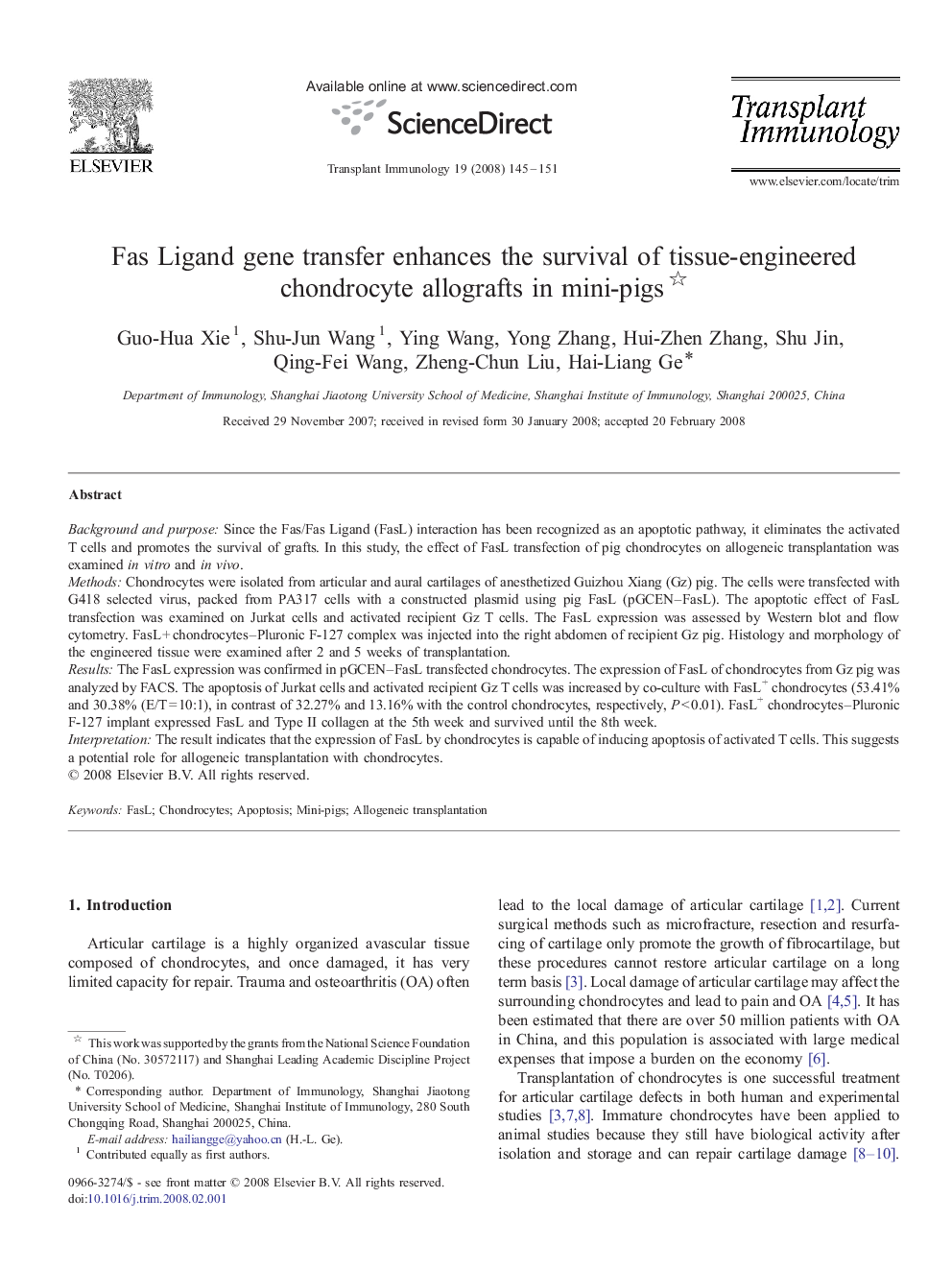| Article ID | Journal | Published Year | Pages | File Type |
|---|---|---|---|---|
| 3392466 | Transplant Immunology | 2008 | 7 Pages |
Background and purposeSince the Fas/Fas Ligand (FasL) interaction has been recognized as an apoptotic pathway, it eliminates the activated T cells and promotes the survival of grafts. In this study, the effect of FasL transfection of pig chondrocytes on allogeneic transplantation was examined in vitro and in vivo.MethodsChondrocytes were isolated from articular and aural cartilages of anesthetized Guizhou Xiang (Gz) pig. The cells were transfected with G418 selected virus, packed from PA317 cells with a constructed plasmid using pig FasL (pGCEN–FasL). The apoptotic effect of FasL transfection was examined on Jurkat cells and activated recipient Gz T cells. The FasL expression was assessed by Western blot and flow cytometry. FasL + chondrocytes–Pluronic F-127 complex was injected into the right abdomen of recipient Gz pig. Histology and morphology of the engineered tissue were examined after 2 and 5 weeks of transplantation.ResultsThe FasL expression was confirmed in pGCEN–FasL transfected chondrocytes. The expression of FasL of chondrocytes from Gz pig was analyzed by FACS. The apoptosis of Jurkat cells and activated recipient Gz T cells was increased by co-culture with FasL+ chondrocytes (53.41% and 30.38% (E/T = 10:1), in contrast of 32.27% and 13.16% with the control chondrocytes, respectively, P < 0.01). FasL+ chondrocytes–Pluronic F-127 implant expressed FasL and Type II collagen at the 5th week and survived until the 8th week.InterpretationThe result indicates that the expression of FasL by chondrocytes is capable of inducing apoptosis of activated T cells. This suggests a potential role for allogeneic transplantation with chondrocytes.
